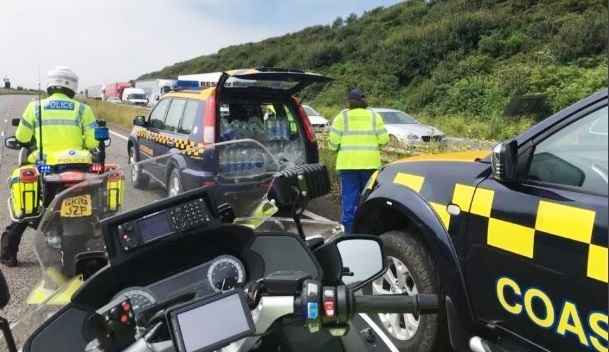Crime cover suffers as Britain under pressure from trebling of migrant surge at borders
Officers guarding Britains borders overwhelmed by a surge of migrants and refugees smuggled in on lorries are being forced to abandon checks on illegal workers and sham marriages.
Jul 25, 2016
By Nick Hudson
Officers guarding Britains borders overwhelmed by a surge of migrants and refugees smuggled in on lorries are being forced to abandon checks on illegal workers and sham marriages.
The number of clandestine entrants has nearly trebled to 6,429 in the six months to the end of September 2015 from 2,411 in the same period in 2014, according to a report published by Independent Chief Inspector of Borders and Immigration, David Bolt.
Stowaways discovered in Kent which at its closest is just 26 miles from France rose exponentially from 340 to 3,624. In the rest of the country, it increased from 2,071 to 3,165.
More than nine in 10 claimed asylum after being arrested or reported to police.
And fears are growing that the so-called Islamic State (Daesh) could strike the gateway to the UK or other Channel coast towns as France is deploying troops to guard the ports for the first time and stepping up security measures in the wake of continental terror tensions.
The report said the Home Offices response to the crisis had put pressure on border staff, who were overstretched and forced to focus on lorry drops costing the Home Office and police forces £17.7 million alone between November 2014 and October 2015 at the expense of other enforcement activity.
Mr Bolt admitted the true figure is likely to be higher as the report only deals with migrants discovered by inspectors.
He warned that Britain now faces a “problematic” backlog of new claims by asylum seekers the majority of the migrants identified by the inspector were under the age of 30 and from Eritrea, Iran, Syria, Sudan and Afghanistan after those awaiting a decision rose from 200 to nearly 4,000.
The report lays bare how the UKs immigration officers battled to deal with the surge in migrants trying to get to Britain from Calais last summer.
Mr Bolt said: “Most of the migrants encountered in-country had entered concealed in or on a heavy goods vehicle and had left the vehicle at its first stopping-point in the UK.
“This form of clandestine entry is commonly referred to as a lorry drop.
Mr Bolt blamed weaknesses in the security around the entrance to the Eurotunnel in France, which allowed migrants to break through the perimeter fence and conceal themselves on trains and then disembark at Longport in Kent.
Other migrants involved in so-called “lorry drops” were found as far north as the M1 motorway as they were unable to climb off the lorries until the driver had stopped for a break.
The surge caught the Home Office unawares and forced managers to divert almost all of the immigration staff in Kent and Sussex to Longport to process the new arrivals.
Mr Bolt said there “was little other operational activity conducted” by immigration teams in Kent and Sussex, East of England and the East Midlands as a result.
The big jump in migrants found on lorries north of London impacted on investigations into organised criminal gangs involved in sham marriages or human trafficking.
Mr Bolt found that in the east of England around a third of their effort was devoted to clandestine entrants.
This resulted in other ongoing investigations being put on hold and new investigations or referrals being deferred or rejected, he said. Mr Bolt added:
Senior managers told us they were aware that other operational activities had been deprioritised in order to tackle the challenges presented by the increase in lorry drop cases in 2015.
In 40 per cent of a sample of cases it found that migratio
Select Vacancies
Greater Manchester Police


